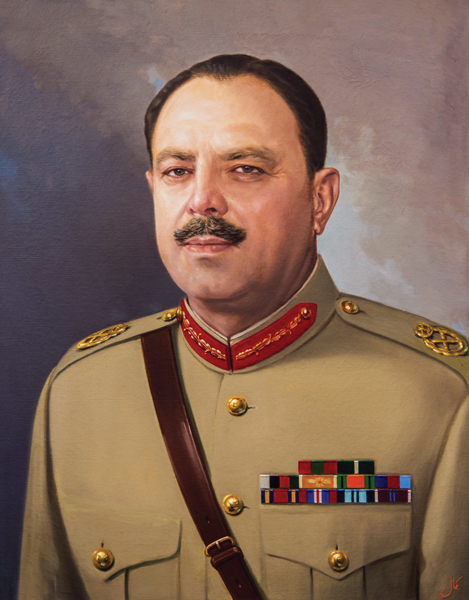- info@mintorians.org
- +91-8076203677
- Delhi, India
Gen. Ayub Khan

Gen. Ayub Khan, Ex-President of Pakistan
General Mohammad Ayub Khan played a significant role in the history of Pakistan, serving as its president from 1958 to 1969. His tenure marked a critical period in Pakistan's modern development, characterized by both achievements and challenges.
Ayub Khan's military and political career began with his education at Aligarh Muslim University in India and the British Royal Military College at Sandhurst. He rose through the ranks of the Indian army during World War II and gained prominence in the newly formed Pakistan army after partition in 1947.
In 1958, amidst political turmoil, Ayub Khan assumed power after President Iskander Mirza abrogated the constitution with the support of the military. Ayub took on the role of chief martial law administrator and later declared himself president, exiling Mirza. During his presidency, Ayub focused on economic reforms, including agrarian reforms and industrial stimulation, as well as encouraging foreign investment to boost Pakistan's economy.
One of Ayub Khan's notable initiatives was the introduction of the "basic democracies" system in 1960, which aimed to decentralize power and establish local self-governing bodies to bridge the gap between the government and the people. However, his reelection in 1965 faced strong opposition, particularly from Fatima Jinnah, sister of Pakistan's founder, Mohammed Ali Jinnah.
Internationally, Ayub Khan established close relations with China and received military aid from them, especially as tensions with India escalated over the Kashmir dispute. The 1965 war with India ended in a UN-brokered ceasefire and boundary settlement, but the failure to resolve the Kashmir issue intensified internal turmoil.
By the end of 1968, widespread unrest, including student protests, forced Ayub Khan to announce he would not seek reelection. Riots continued, leading to his resignation in March 1969. He was succeeded by General Yahya Khan.
Ayub Khan's presidency was a complex period in Pakistan's history, marked by economic reforms, political centralization, and regional tensions. His legacy continues to be debated, with some viewing him as a modernizer and others critiquing his authoritarian tendencies and handling of internal and external affairs.
